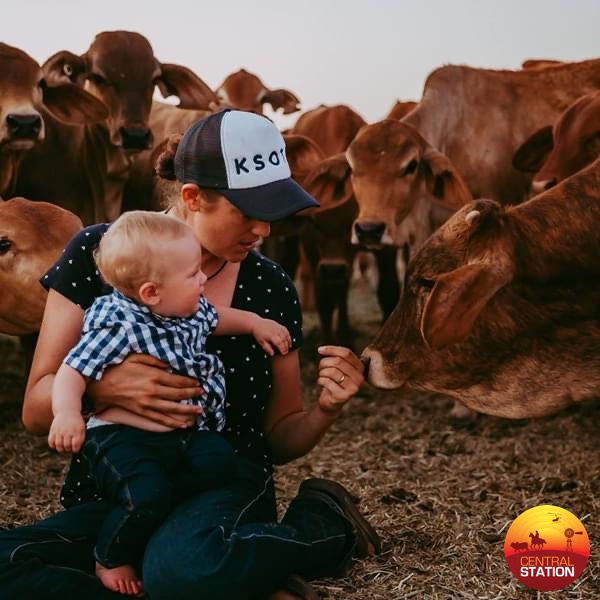9 years on, why I still support live export
Written by Barbara Camp – Kalyeeda Station
It occurs to me in the years I’ve been writing for this site, I’ve shared a lot about my weird and wonderful life in the bush – my love for animals and horses, and my experiences living in remote Australia after finding love out bush when I went travelling as a vegetarian Scottish backpacker. Out here I’ve told you about becoming a nurse and mother and my continued love of working as a station hand. All these different roles I play based around my life raising cattle in the Kimberley.
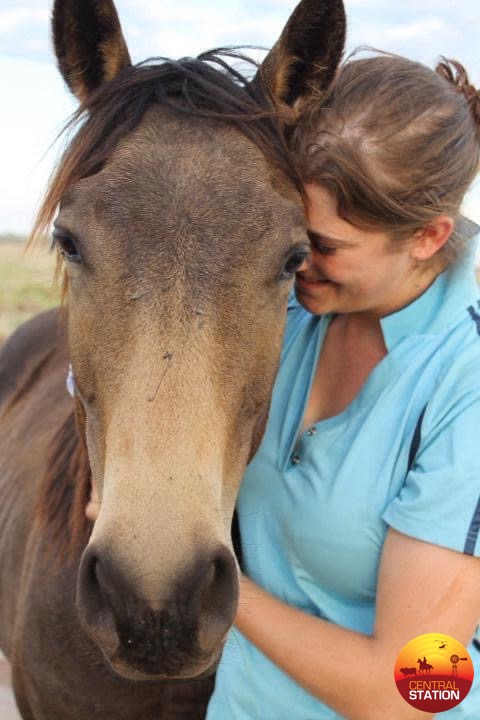 I’m a typical woman of the land: animals are my love and life and always have been.
I’m a typical woman of the land: animals are my love and life and always have been.
But I’ve never told you about why, as someone who defines herself on love and compassion for fellow beings, I am so committed in my support of the live export industry.
Wow, things have just gotten controversial.
At face value, it makes little sense based on populist views, but if you have the patience to listen to what I have learned I hope you might begin to understand why.
In 2011 when the Animals Australia footage of horrific methods of cattle slaughter in Indonesia came to light I was not just as sickened and shocked as the rest of Australia – I felt it more deeply than any displaced city dweller because I lived and breathed station life.
I raised and cared for these creatures from birth, in some cases literally bottle feeding them from day one. I have been there for the whole process. I don’t just have an abstract love for animals – they are literally my life. I’ve had my bones broken by them and body bruised for them. I’ve cried over them, run with them, worked together with them.
We butcher and eat our own meat from cows that live free-range, happy lives where we tend to them, vaccinate and supplement them and kill them humanely for our own nourishment. We do not waste nor undervalue their lives and existences as ours literally revolve around them. They live good lives and never suffer needlessly at our hands.
So when I saw the footage of what ends our beautiful animals were sent to it made me sick to my stomach. To feel I had betrayed their lives in such a way was awful and shook my moral core. And I was not alone – we farmers choose this life because of our love of animals not because we hate them.
We wanted action. We wanted change. We wanted vindication and validation that we were not heartless monsters sending our animals to some heathen hell.
We asked, and do you know what? The world responded. A massive scramble commenced to fix the broken wheel. Abattoirs were closed, money was pumped in. Systems were changed and staff were educated. Electronic tracing was brought in so every single animal could be followed from our stations out to each individual feedlot and abattoir. The Indonesian government and the Australian businesses tied up in the industry fought to bring the practices up to our standards. Bam! A massive PR win! The industry was saved and we could all go back to happily sending our cows over to foreign parts. We can sleep easy in our beds because we have electronic tracing to let us know everyone is doing the right thing!
Wow, what a dry and abstract placation that all is!
That is not the reason I am such a supporter of live export, though it is the foundation of all I’m about the tell you.
Because something much smaller and more personal came from that ban – a group of girls up here in remote Western Australia attended a meeting aimed to empower us into being Influential Women in these trying times and situations, and someone asked us how we felt after this ban.
They asked what we could do ourselves about this situation so we were not powerless and left relying on the promises of The Man and The System to let us justify our lives.
Lots of things came from asking and answering this question – not in least the very birth of Central Station and all it as achieved, but that had its own birth story and it started with this:
A group of us ladies, full of self-righteous indignation, headed off to Indonesia our very own selves to see with our own eyes what was going on. We wanted to find out what had changed and see what was happening. I was 25 years old, full of passion and high-mindedness. Our cattle had better be treated properly or Indonesia should watch out!
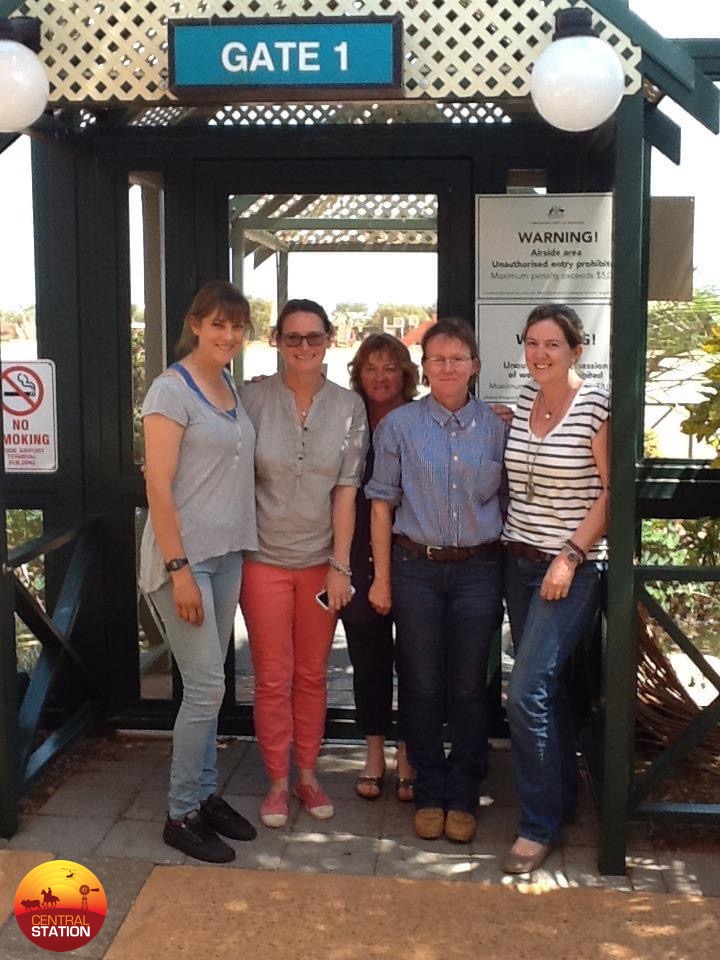
But that trip totally shattered my world view and more importantly my own personal identity. Over those few days I did indeed see our cows cared for and treated well. I also saw what a privileged and sheltered little white girl I was and just how lucky I was to have lived my whole life that way.
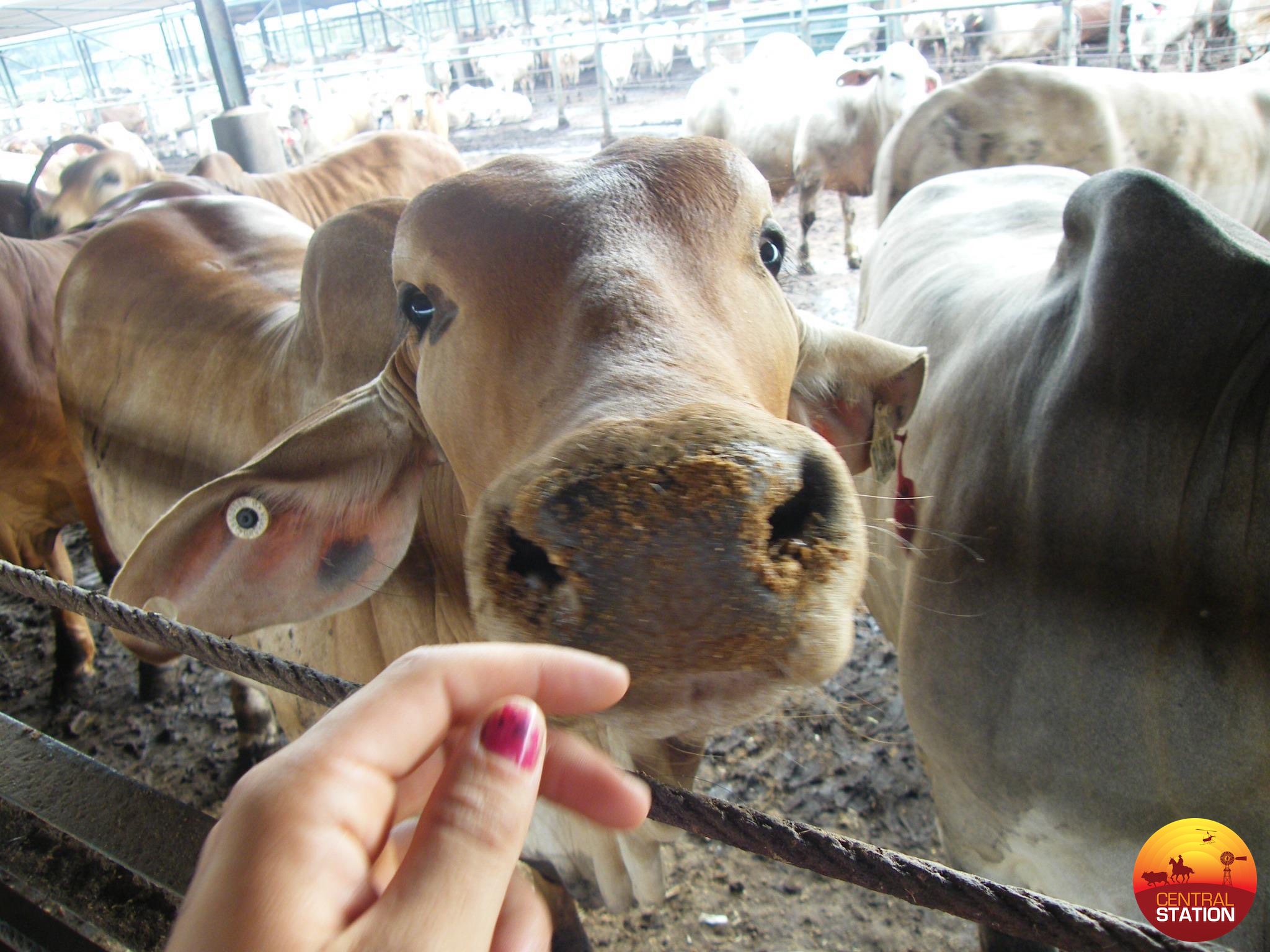
I saw poverty. I saw need. I saw good, hardworking people. People that I was expecting to treat my cows better than they were able to treat their own children.
That was the first time I had experienced a third world country. As we were taken to various stops on the foreign side of the live export chain I met some incredible faces – real people who were doing their bit and living their lives with a very different reality to mine.
People with brilliant stories and insights to share.
I went out to feedlots and saw animals that started their lives a few hours from my home living a quiet and happy existence as they put on weight, but what was more important to me – I learned these creatures were quiet and happy because they were hand-fed every day by a smiley young bloke with a bushel of some green crop I cant remember the name of that was grown in the local village.
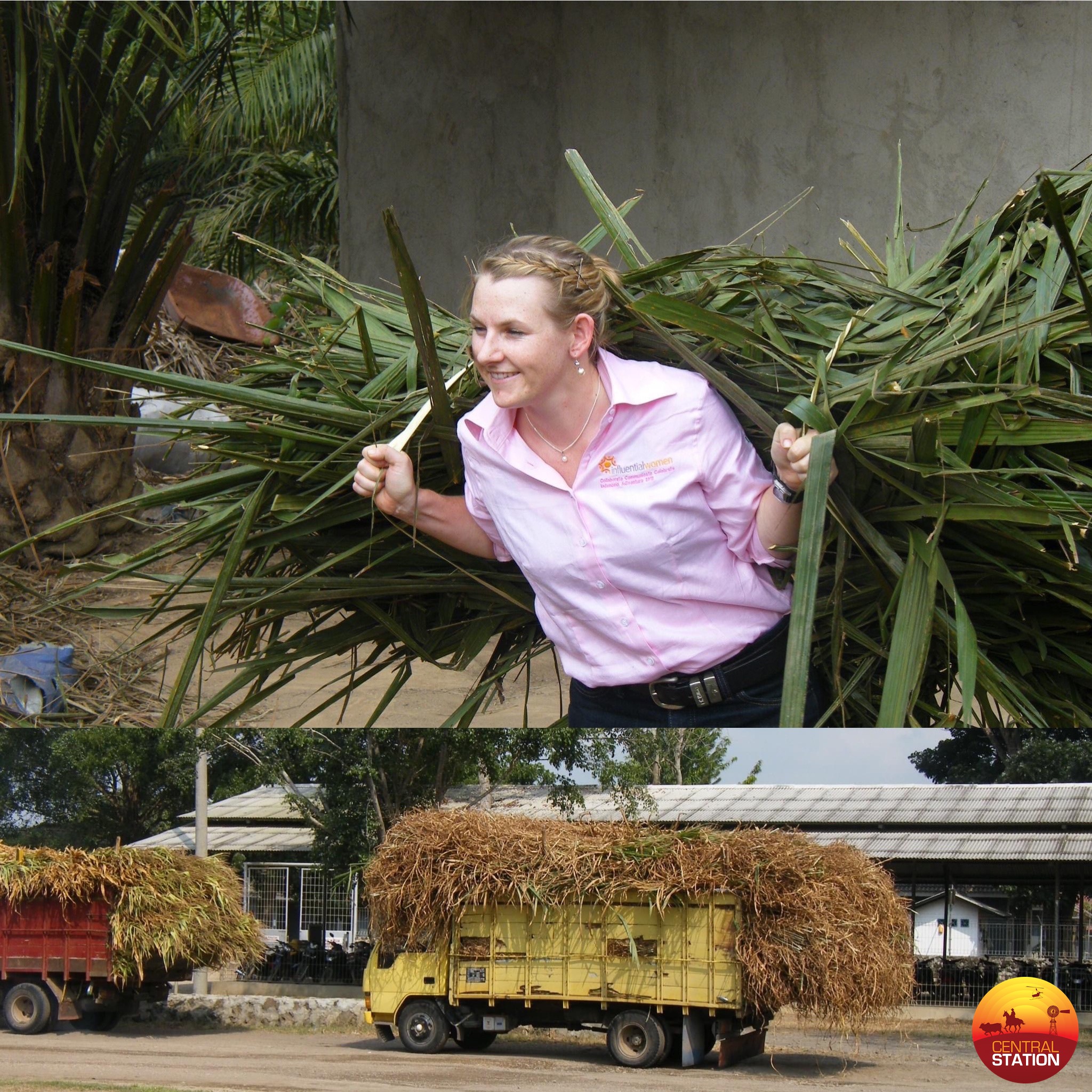
They were hand fed because they didn’t have any tractors or machinery like we do in our feedlots at home.
In fact, the entire population of the village near the feedlot was somehow employed in supporting it – whether it was growing and tending the crop or mucking out the cattle pens by hand.
Wives, kids and supporters working their fingers to the bone to support their meagre existence.
Have you ever experienced real poverty? I have a feeling very few of us sitting reading this on our phones or tablets have. It’s no dick Whittington story: you can’t just pick up your kerchief and leave in search of better conditions if you fall on hard times, because you will find no streets paved with gold on the next town. They are in the same boat as you. Plus who will feed your wife and skinny chickens? There is no government payments or support: no bank loans and equity. No one cares. No one is rooting for you to pull yourself into the next level of financial stability. Your next meal is reliant on your ability to earn it.
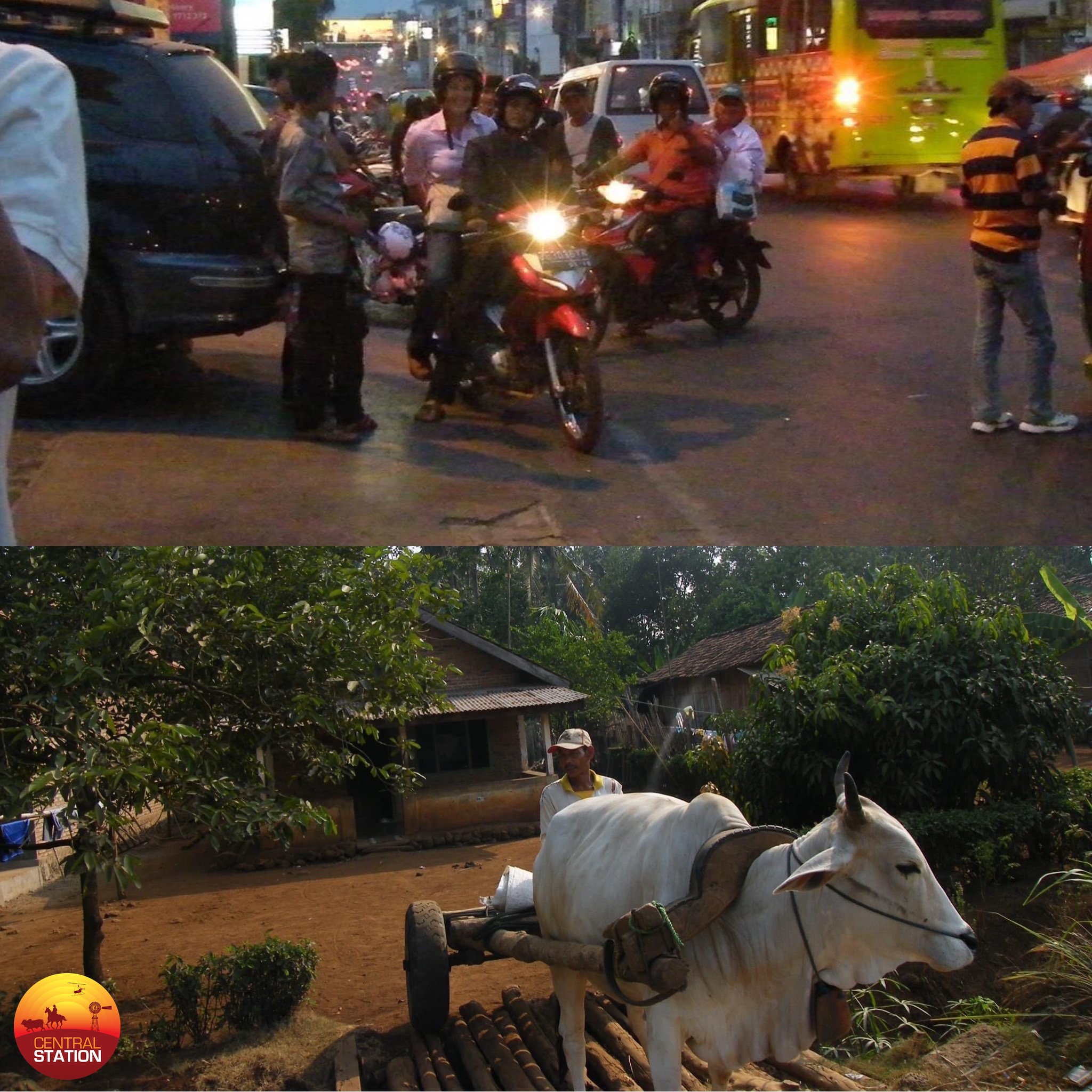
Oh, and the meals! I learned just what a precious commodity our Aussie beef is. Touring the meat processing factories was a wake up call in itself.
I don’t remember many facts and stats from all those years ago but one that stuck in my mind was that the average Indonesian – I mean the joe blow out in the rural village and streets, not one of the lucky few who make up the wealthy, powerful top potatoes – eats 2.5kg of beef a year.
That really struck home because I’m pretty sure my dear hubby has been known to manage that much in one sitting.
But no – most of these guys protein is metered out in heavily processed delights called bakso balls or some very diluted sausages. Meat content can an average of 20%, much of the rest is tapioca or some other nameless meal. Not what I would want to be my son’s regular protein source.
I saw how literally every part of the animal is put to good use – nothing is wasted or chucked because they literally did not have the luxury of being able to be choosy. Malnutrition was very real and very fatal.
We visited with a high end butcher that mainly supplied the good cuts of meat to ex-pats. I remember that particularly because it was the first time I tried Wagyu steak.
I also remember it because we were told of how, when the butchers had started supplying a local orphanage with the off-cuts and offal that we westerners just throw away the health of the children improved so much that the medial bills dropped by two thirds due to the improved diet.
That was sobering.
In Indonesia, out in the sticks I saw so much. Not only did I see the improvements in the animal welfare my self-righteous self was hoping to see, I saw a group of people scrabbling to put in rules and practices they didn’t understand or ever have the luxury of even having the energy to consider in order to placate this rich country that held in its hand the ability to instantly cut off a source of nourishment and employment.
It really hit home to see how real life people get forgotten in our generalisations about entire populations.
Because if the export industry had been closed it would not have been the owners of these feedlots or the bosses of the abattoirs that suffered – it would be those real, forgotten, little people.
The smiley hand-feeder, or the soft spoken abattoir worker who had proudly shown me his new chain mail gloves.
The people whose entire livelihoods revolved around the pittance they made feeding out these cattle by hand, or butchering just a few animals every day – only as much as would be sold within a few hours because who can afford refrigeration, forget about boxed cuts of meat from foreign lands.
Real people rely on being able to buy our half grown cows so they can feed them a little more in order to earn some money to feed their own families. If that were to stop then it would devastate the little guys out there.
That’s when I realised live export was so much more than a way of making money – it was an avenue to allow people to help and improve themselves.
If we use it wisely it is a humanitarian tool to allow people to feed and support themselves. And yes, that all links back to animal welfare not just in Australia but globally – how can you expect people to treat animals better when they don’t even have the means to look after themselves?
My cows matter, but so do these children that the off-cuts of beef were feeding at the orphanage. Rather than condemning an entire industry with closed-minded, definitive broad strokes we need to use it to improve things for people and animals beyond our shores because we are lucky enough to be able to do that.
The live export ban highlighted a massive issue in international animal welfare. That sparked change. It improved a broken and faulty system and I hope we never get so complacent as to let poor practice creep back in.
But I will fight to keep live export going and continue to support it from the bottom of my heart because I honestly believe it is an industry that has genuine potential to make the world a better place for people, who in turn will make it better for the animals they care for.
I hope we keep watching our own backs and learn to stand up and shout when we encounter animal welfare issues both on the small scale in individual places or situations, to the big picture where whole countries (ourselves included) need to up their standards of care at the very level of the law.
But like I myself – nurse, mother, jillaroo and member of this world cannot imagine a life without animals, I cannot imagine living a life where we don’t use our ability to support and help some of our closest neighbours to grow and improve their own lives.
